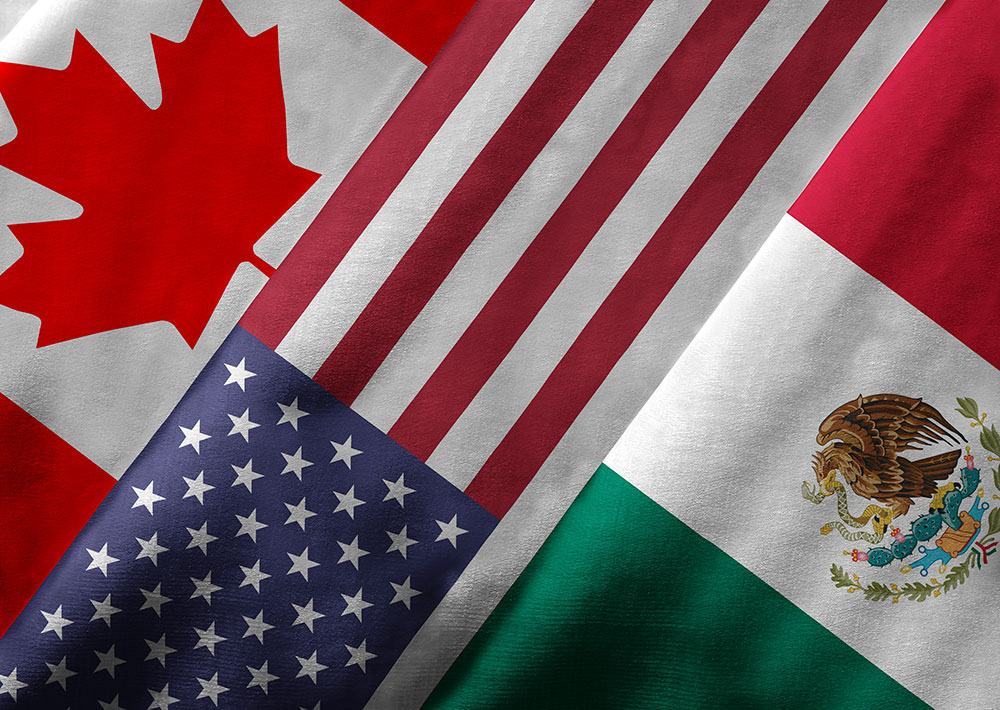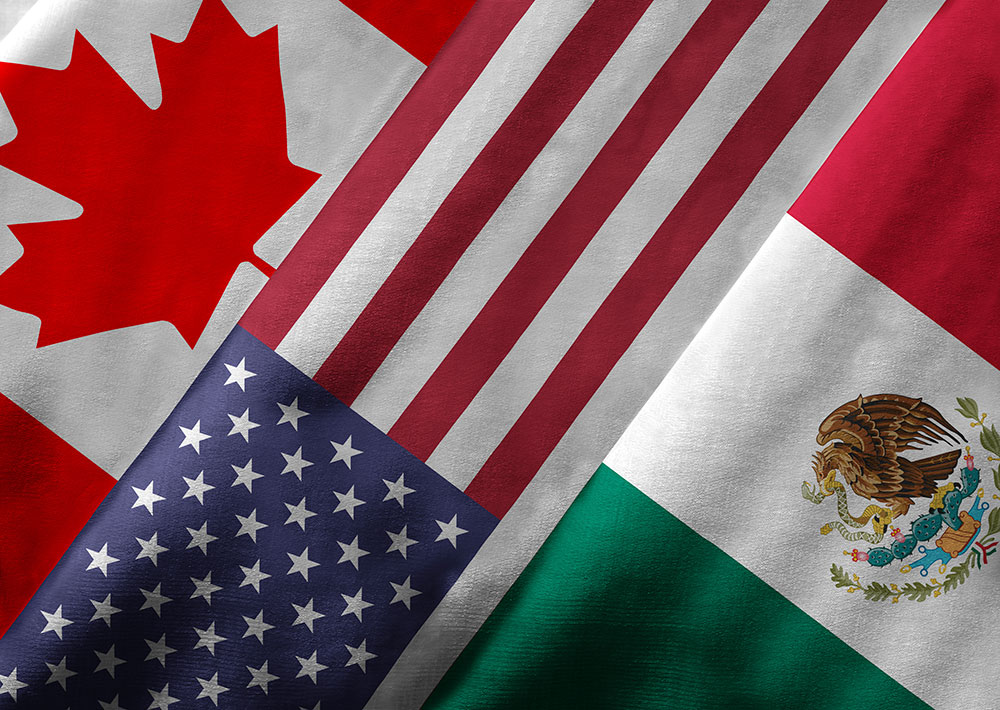 The “Rules of Origin” under NAFTA are the criteria used to determine the country of origin of a product that is being imported or exported within the NAFTA region.
The “Rules of Origin” under NAFTA are the criteria used to determine the country of origin of a product that is being imported or exported within the NAFTA region.
As part of NAFTA, the United States, Canada and Mexico (the “Parties”) have all agreed to reduce and/or eliminate tariffs on goods that originate from their respective territories.
However, the Parties continue to apply significantly higher tariffs to goods that do not originate in one of the NAFTA countries.
Maximum benefits (i.e. duty free entry into the NAFTA market) are only conferred upon goods that are said to “originate” in one of the three NAFTA countries. Rules of Origin are therefore extremely important, because they act as the mechanism that determines which goods can be properly classified as “originating” in the NAFTA territory.
Consequently, this decides which goods are entitled to preferential tariff treatment.
Why you need to know the rules
A proper understanding of the rules and their application is critical for any importer/exporter conducting business in the NAFTA region. This knowledge enables them to leverage available preferences and reduce the likelihood of stiff monetary penalties and fines.
As a start, the Rules of Origin inform what information an exporter will put on their Certificate of Origin, which is a necessary document to claiming and obtaining a NAFTA tariff preference for imported goods.
The Certificate of Origin requires that the exporter properly identify the Country of Origin of the goods they are shipping – in other words, the exporter is responsible for the correct determination of the “origin” of the exported goods.
Invalid Certificates of Origin based on an improper or incorrect classification of the “origin” of a good, have recently become one of the largest problem areas for exporters, often resulting in significant fines and penalties.
An invalid NAFTA Certificate of Origin will result in the denial of NAFTA origin duty free treatment. And be warned, duties can be applied retroactively.
The complicated world of determining origin
In an increasingly global marketplace, where final products are commonly composed of inputs from various geographic locations, it can often be difficult to properly determine the origin of a good.
As mentioned earlier, NAFTA tariff preferences will only apply to goods that are found to “originate” in one of the three NAFTA countries. Goods originating from countries other than the U.S., Mexico and Canada – that are merely shipped through, or go through minimal transformations in the NAFTA region – are not eligible for NAFTA benefits.
However, if inputs from non-NAFTA countries go through a certain amount of processing or transformation within the NAFTA region, they may qualify as NAFTA originating goods.
The predominant way in which a good, which uses non-NAFTA-originating inputs, can qualify as a NAFTA-originating good, is through what is called a change in tariff classification, otherwise known as a tariff-shift.
The tariff-shift serves as an indicator of whether sufficient processing or transformation of the non-originating inputs has taken place in the NAFTA region, enabling the final product to qualify as NAFTA-originating.
Determining origin through sufficient transformation – Consider biscuits
Sufficient transformation requires that the non-originating inputs be classified under one tariff provision before processing, but be classified under a different tariff provision after processing is complete.
As an example:
If biscuits (tariff number 1905.90) are being produced in Canada entirely from NAFTA-originating inputs except for the flour (tariff Chapter 11), which originates or is imported from Europe, can the biscuits, which contain non-NAFTA originating inputs (sugar) still qualify as NAFTA originating because a sufficient transformation has taken place?
The applicable Rule of Origin for biscuits states that a tariff-shift will have occurred if there is “a change to heading 1902 through 1905 from any other chapter.” Since the flour (tariff Chapter 11) is outside headings 1902 through 1905, the tariff-shift rule has been met and the biscuits would be found to originate in Canada and therefore qualify for NAFTA duty free tariff.
It is important to keep in mind that the rules are not always clear, and when multiple non-originating inputs are involved in the production of a good, the determination can become that much more complicated.
Exporters should err on the side of caution.
When in doubt, contact a trade professional and seek an Advanced Customs Ruling from the CBSA, an effective way of avoiding uncertainty and potential costly penalties.
CBSA Advanced Rulings can determine, before importation is made:
1. Whether an imported good properly qualifies as a NAFTA originating good and therefore qualifies for preferential treatment;
2. Whether a tariff classification change has been met for the good to qualify as NAFTA originating.
To sum it all up, if exporters are cautious and do their due diligence in research, consulting the rules of origin before exporting, they will gain access to the many benefits of NAFTA originating products and will avoid unnecessary and costly fines.
If you have questions about the Rules of Origin, NAFTA benefits, international trade law, business or investment, contact Woods LaFortune LLP.
Have you gotten caught in owing with unexpected fines and penalties because of your products’ origins?








Conducting adequate research and being aware of the legal environment is so important in an industry like international trade, where the loopholes are plentiful and the fines, tariffs and penalties can be astronomical. There’s some great info in here, you’ve done a great job at simplifying a complex topic. Great post Catherine!
Thank you for your feed back. Indeed the legal aspects of international trade requires due consideration for those involved in global business.